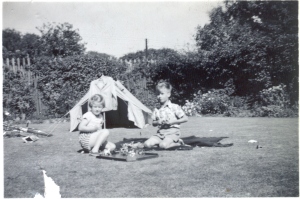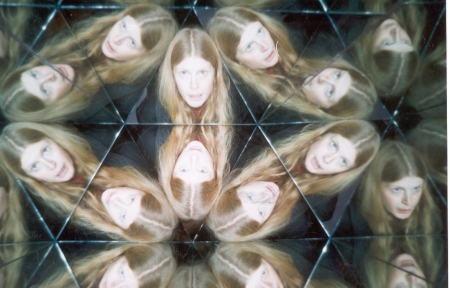I used to hear this catchphrase of comedian Robb Wilton’s a great deal when I was a child, because I happened to be born on September 3rd, and any reference to my birthday, at any time of the year, was always tagged by my father with the line, almost as if he and my mum were proud to have had their eldest on a Significant Day. I wonder if this happens to Caryl Churchill, with whom I share the birthday. I doubt it (not least because she was born a year to the day before war broke out, and, in passing, isn’t ‘broke out’ a curious phrase, as if war was like measles or a change in the weather? I wonder which came first, the phrase, or Robb Wilton’s line).
September was a good day to have a birthday, because a) we were always on holiday then, b) (as I have remarked before, several times) it was the start of the traditional we-weren’t-expecting-that Indian summer. I don’t remember it ever raining. I remember my seventh – or it might have been my eighth – birthday well. I was given a bike. In the morning, my father took me down to the green in front of Bamburgh Castle, and taught me to ride it (there can’t have been many more scenic places to learn to ride a bike), and we were allowed to have a tent up in the garden of the cottage where we went, every year, on holiday. You can see in the picture below that, far from being obsessed with my new means of transport, I had already been diverted into playing picnics with my sister. The bike lies lopsidedly on the grass.
Of course, I can’t be sure this picture is taken on my birthday, and of course, I can’t really say I remember it well. My memory has been conditioned, sharpened and refined by the fact that pictures were taken, and that they seem to take place on the same day. I’ve only just found this one, this past weekend, in an album, dust-covered and unopened since she died.
My family seems, in retrospect, to have been quite food-obsessed, in that it was an unwritten rule that, on my birthday, I could eat whatever I liked, even if the combination on the plate looked wrong. I will spare you the options, but there is no doubt that Twiglets were involved, lots of them. Even now, if I meet someone I haven’t seen since childhood, the subject of Twiglets is raised. Since I actually ate very little then, something my current bulk makes a bit surprising – I almost never ate sweets, for instance – it is clear that it is quite surprising that I did not grow up with knobbly limbs, covered in sticky brown spots.
My birthday cake had to be blue. This was not gender-conditioning. It was because no other food was blue, and I liked the oddity (I did some appalling experiments with food-dyes in my twenties. Heston Blumenthal would understand).
But birthdays are bitter-sweet, like Twiglets and blue cake. Because my sister died eight years ago, and there is no-one I’d rather share it with. So I’ll dedicate this latest one to her.




 Posted by billgreenwell
Posted by billgreenwell 